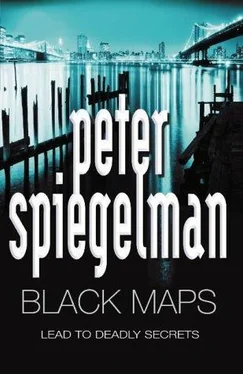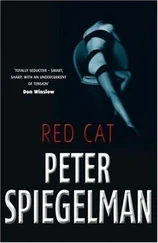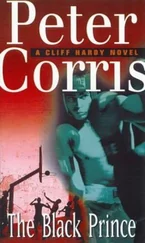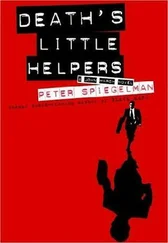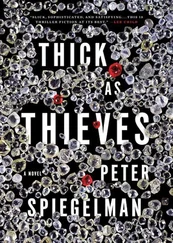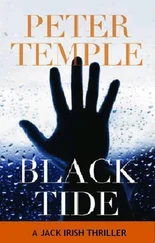Peter Spiegelman - Black Maps
Здесь есть возможность читать онлайн «Peter Spiegelman - Black Maps» весь текст электронной книги совершенно бесплатно (целиком полную версию без сокращений). В некоторых случаях можно слушать аудио, скачать через торрент в формате fb2 и присутствует краткое содержание. Жанр: Криминальный детектив, на английском языке. Описание произведения, (предисловие) а так же отзывы посетителей доступны на портале библиотеки ЛибКат.
- Название:Black Maps
- Автор:
- Жанр:
- Год:неизвестен
- ISBN:нет данных
- Рейтинг книги:4 / 5. Голосов: 1
-
Избранное:Добавить в избранное
- Отзывы:
-
Ваша оценка:
- 80
- 1
- 2
- 3
- 4
- 5
Black Maps: краткое содержание, описание и аннотация
Предлагаем к чтению аннотацию, описание, краткое содержание или предисловие (зависит от того, что написал сам автор книги «Black Maps»). Если вы не нашли необходимую информацию о книге — напишите в комментариях, мы постараемся отыскать её.
Black Maps — читать онлайн бесплатно полную книгу (весь текст) целиком
Ниже представлен текст книги, разбитый по страницам. Система сохранения места последней прочитанной страницы, позволяет с удобством читать онлайн бесплатно книгу «Black Maps», без необходимости каждый раз заново искать на чём Вы остановились. Поставьте закладку, и сможете в любой момент перейти на страницу, на которой закончили чтение.
Интервал:
Закладка:
I went to the back door and turned around and worked the knob with clumsy fingers. I turned and pulled, but the door didn’t move. I took a closer look and saw a heavy sliding bolt, mounted about a foot from the top of the door, out of reach. Shit. I went into the hallway, past the basement door, to the front of the house. I was in a small, wood-paneled foyer. There were dark rooms on either side, and a dark, narrow stairway up. Straight ahead was the front door-with another heavy bolt set up high.
I went back to the hallway, to the basement door. There was a sliding bolt on it, too, at the same impossible height, but there was no lock on the knob. I heard voices on the other side of the door, but I couldn’t make out any words. I went to the kitchen, and, as quietly as I could, I slid my chair into the hallway, to the basement door. Working it with my feet and legs, I wedged it under the knob. It wouldn’t stop him, but it might slow him down a little.
I twisted in the cuffs some more, but there was no play; they were too tight for me to work my arms out in front of me. I went into the kitchen and looked on the table. Nothing there but the boxes. I looked inside them and saw only the manila envelopes. Each one had a name written on it in heavy black marker. I saw one with Bregman’s name on it. And I saw another with Pierro’s. Shit.
I went to the stove. It was gas, an old one with four burners and pilot lights instead of electric igniters. The black knobs were worn. Time to go. Past time. My cold fingers found the knob for the right front burner. I turned it up all the way and heard the whispered whump as it ignited. Then I clenched my teeth and reached back and put the plastic cuffs, and my wrists, into the flame.
I swallowed a scream and yanked them out again after a few seconds. I took a deep breath and caught a corner of my jacket between my teeth. I bit down hard and put my wrists back in. The pain was searing. I smelled burning plastic and something else I didn’t want to think about. And then I heard a cry of surprise and two gunshots from the basement. Shit.
I worked my wrists again. There was a little give, but not enough, and they hurt like hell from the burns. I heard movement downstairsfootsteps. I took another mouthful of jacket and put my wrists back in the flame. My teeth ground into the leather. The plastic smell was stronger, and I heard a sizzling sound. The pain was huge, molten, growing like a fiery balloon. And then my wrists came free.
Blood flowed back into my hands and with it more pain. I knocked off the remains of the cuffs and the shards of melted plastic. I went to the boxes and from the middle one fished out Pierro’s envelope. It was bulky, and there was something hard and plastic inside. I folded the envelope and shoved it under my belt, behind my back. I heard footsteps on the stairs. Shit.
I looked at the boxes and the forty or fifty yellow envelopes inside them, and the names written in black. I thought about Bregman and Lenzi and the poor bastards in Burrows’s stories. I thought about Burrows himself, and Lenzi’s wife, crumpled and crying by her front door. I grabbed the vodka bottle from the counter and emptied it on the boxes. The basement doorknob rattled and the door creaked. The chair slid a fraction of an inch and caught. There was a startled noise, a louder rattle, and a shove against the door. Shit.
I pulled an envelope, wet with vodka, from the nearest box and touched it to the lit stove. It burst into flame. An angry bellow came from behind the door, and something slammed against it. The door shuddered wildly, and I felt the impact through the floorboards, but the chair held. I ran the burning envelope over the boxes, and flames took hold immediately. The fire was smoky and had a chemical smell.
There was another noise from the basement, a shout, enraged and unintelligible, and then the sound of gunfire, roaring around the room. The vodka bottle exploded, one of the boxes jumped and fell, burning, to the floor, the stove shook, and flames leapt from a gash in its front. Something tore at my cheek and my neck. Light from the basement streamed through three ragged holes in the kitchen wall. Time to go. Way past time.
I fumbled with the bolt. There was another crash, and I looked back through the smoke to see the chair splinter and the basement door fly open, and then I was out-down the back stairs, across the yard, into the snow, gone.
Chapter Twenty-seven
It was a neighborhood of cops and firemen, and they knew the sound of gunshots and the smell of burning houses. They didn’t like either in their own backyards. I’d gone maybe a block, toward Hillside Avenue, when a local guy stopped me. He was still in uniform and looked done in, like he had just gotten off a long shift. His service piece was still on his hip.
I moved slowly and kept my hands in plain sight. I told him that Trautmann’s house was on fire and that there was someone in the basement, probably dead, and someone else inside or nearby, definitely armed. And I told him that if I didn’t sit down soon I was going to fall down. He seemed to recognize Trautmann’s name and did not seem shocked by the turn of events. He told me to sit on the curb. I was happy to do it. Windows and doorways all around had begun to fill with the curious, and a couple of big guys were approaching from down the block. I put my head down and thought about not puking, and tried not to shake. The snow began to cover me.
The night became a blur of flashing lights and squalling sirens. EMS arrived just behind the fire crew and three blue-and-whites. The techs shined lights in my eyes, picked the bigger splinters from my face, and dressed the wound on my head and the burns on my wrists. They said I needed X rays and returned me to the cops, who offered me a squad car to sit in. I got in back but left the door open, in case I had to throw up.
The smoke from Trautmann’s house drifted down the block and into the car and stung my eyes. I closed them and put my head back and listened to the squawks and chatter around me. From what the firemen said, the blaze had stayed mostly in the kitchen. It hadn’t taken long to control, but the room was pretty much destroyed. No one had yet found any bodies, alive or dead. At some point I dozed off.
The detectives woke me, two wrung-out looking guys in their early fifties. They made me get out of the car and show ID, then they asked me a lot of questions and got annoyed when I answered only a few of them. They put on a little theater for my benefit: one guy was Menace, the other was Earnest Concern. But they were tired, and it was a halfhearted effort, and we all knew it. They were just wrapping up, thinking about cuffing me, when Tom Neary arrived, picking his way through the crowd of vehicles, uniforms, and onlookers. Eddie Sikes and Juan Pritchard drifted in behind him. They looked like they’d been sleeping in their clothes.
They all showed ID, and Neary spoke to the detectives while Sikes, Pritchard, and I stood around. A wave of nausea and dizziness hit me while we waited, and I listed heavily to port. Sikes and Pritchard steadied me, and I sat back down in the squad car. Neary kept talking. The cops listened in silence, and eventually everyone started to nod. Then we all went to the station house. I rode with the cops; Neary and company followed. They didn’t cuff me and they didn’t search me, but there was nothing to be found now. The manila envelope was safe with Juan Pritchard, who’d tucked it deftly into the folds of his topcoat when I’d passed it to him.
The station house was small and too warm and filled with the smell of burnt coffee. We sat in a room of green painted cinderblock, in beige metal chairs at a beige metal table, and we waited. I drank a Coke and put my head down on the table. Neary shook me when the lawyers came: Mike Metz and an attractive, fortyish, black woman I didn’t know-a Brill lawyer. A couple of feds were right behind them. I didn’t recognize them, but the Brill people did.
Читать дальшеИнтервал:
Закладка:
Похожие книги на «Black Maps»
Представляем Вашему вниманию похожие книги на «Black Maps» списком для выбора. Мы отобрали схожую по названию и смыслу литературу в надежде предоставить читателям больше вариантов отыскать новые, интересные, ещё непрочитанные произведения.
Обсуждение, отзывы о книге «Black Maps» и просто собственные мнения читателей. Оставьте ваши комментарии, напишите, что Вы думаете о произведении, его смысле или главных героях. Укажите что конкретно понравилось, а что нет, и почему Вы так считаете.
